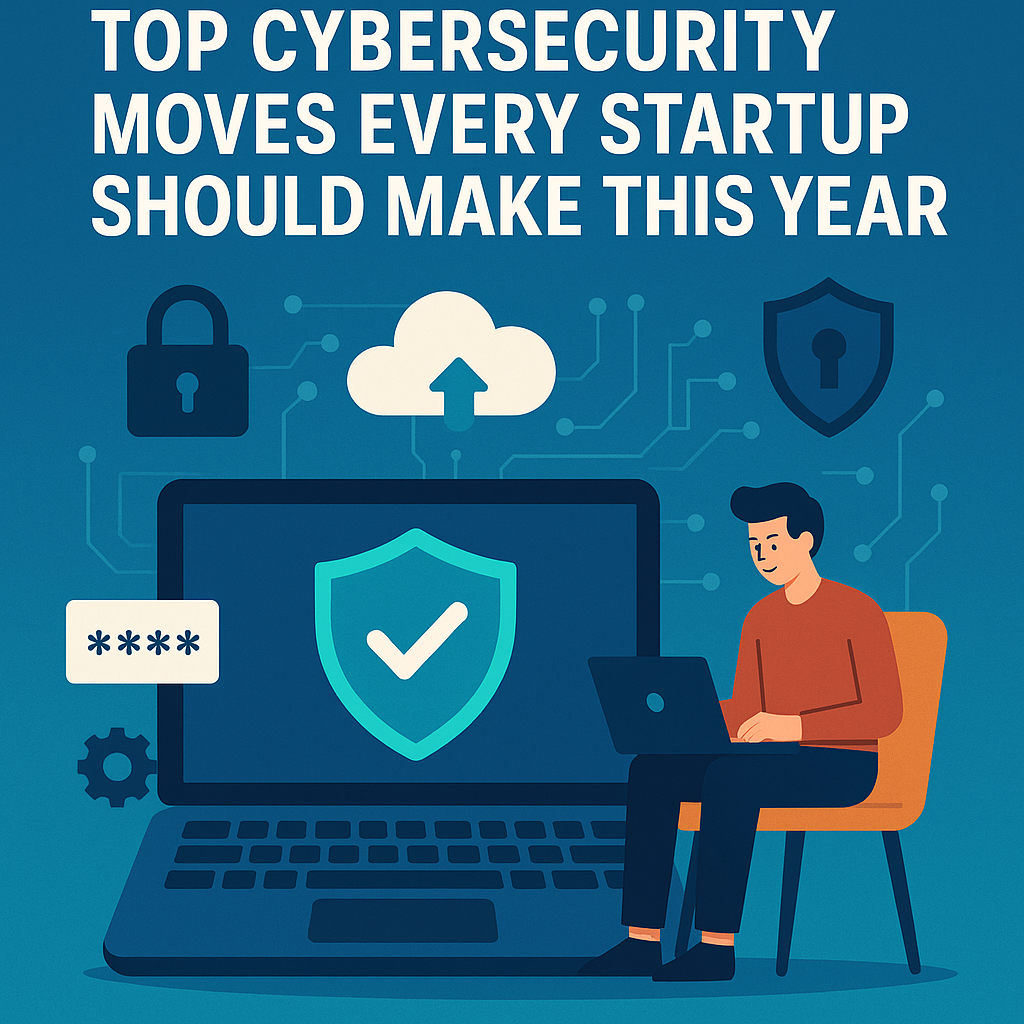
Top Cybersecurity Moves Every Startup Should Make This Year
Let’s face it—your startup is a magnet. Not just for investors or customers, but also for hackers. Yes, those digital pickpockets lurking in the shadows of the web, looking for a way in. The good news? You don’t have to be a cybersecurity expert to lock your digital doors tight.
Why Should Startups Care About Cybersecurity?
You’re probably thinking, “We’re too small to be a target.” Hate to break it to you, but that’s exactly what makes you attractive. Hackers love small businesses because they assume you don’t have strong defenses. Kind of like robbing a house with the lights off and no barking dog.
Cyber Attacks: Not Just a Big Business Problem
Big corporations make headlines, sure. But over 60% of small businesses experience cyber attacks every year. Ouch. And the worst part? Most never fully recover.
1. Start with a Solid Cybersecurity Policy
Think of this as your startup’s constitution. It outlines what employees can and can't do, how to handle sensitive data, and what to do when things go sideways. It’s your first line of defense—and no, “Just be careful” doesn’t count.
What Should It Include?
- Password policies
- Incident response steps
- Use of personal devices
2. Use Multi-Factor Authentication (MFA)
Imagine locking your front door, then also chaining it shut and putting a security camera outside. That’s what MFA does for your logins. Even if someone gets your password, they still need another code or biometric to get in. Double the locks, double the safety.
3. Encrypt Everything—Yes, Everything
Encryption scrambles your data into gibberish unless someone has the key. It’s like speaking fluent Pig Latin to outsiders. Whether it’s customer emails or internal files, encryption makes sure no one can eavesdrop on your business secrets.
4. Embrace the Cloud, But Do It Securely
Cloud Solutions for Entrepreneurs can be a game-changer—scalable, affordable, and accessible. But if you don’t lock it down, it’s like leaving your treasure chest wide open in the town square.
Steps to Set Up a Secure Cloud Infrastructure
- Use reputable providers with strong security reputations
- Turn on encryption and MFA
- Back up regularly
- Set user permissions carefully
5. Train Your Team (Over and Over Again)
Human error is the weakest link. One wrong click on a phishing email and boom—your data’s gone. Regular training sessions and simulated phishing tests are like gym workouts for your team’s cyber muscles.
6. Automate Where You Can
Ever feel like you’re spinning plates? That’s where how to automate your business workflow comes in. Automation tools can reduce human error and handle repetitive tasks faster and safer.
Recommended Automation Tools for Teams
- Zapier
- HubSpot
- Slack integrations
- IFTTT
7. Choose the Right SaaS Tools Carefully
How to choose the right SaaS for your company? It's more than just picking the prettiest interface. Look for vendors with solid track records, transparent security practices, and compliance with industry standards.
8. Use the Best CRMs for Startups—Securely
Best CRMs for startups offer amazing ways to manage customer data. But that data is gold—and you better guard it like a dragon guards treasure. Make sure your CRM has built-in security features and access control.
9. Regularly Update All Software
Yes, those annoying update pop-ups are annoying for a reason: they’re important. Each update patches known vulnerabilities. Ignoring them is like seeing a hole in your roof and deciding it's fine because it’s not raining... yet.
10. Monitor Everything Like a Hawk
Business data analytics tools aren’t just for tracking sales or traffic. Use them to spot irregular activity and flag possible threats. The sooner you know something's off, the faster you can act.
11. Use Firewalls and Antivirus Tools
Old school? Maybe. Still effective? Absolutely. Firewalls act like gatekeepers, and antivirus software is your guard dog. Don’t skimp on these basics.
12. Backups Are Your Secret Weapon
If all else fails—and sometimes it does—a recent backup can save your bacon. Store copies of essential data in secure, offsite locations and test your restoration process regularly.
13. Leverage AI for Threat Detection
Using AI in small business isn’t just for customer service or marketing. AI can also sniff out unusual patterns and stop threats before they bloom into disasters.
Best AI Tools to Boost Small Business Productivity and Security
- Darktrace
- CrowdStrike Falcon
- Sophos Intercept X
14. Limit Access Like It’s VIP Only
Not everyone needs access to everything. The janitor doesn’t need the CEO’s laptop, and your intern probably doesn’t need the customer database. Role-based access keeps everyone in their lane.
15. Plan Your Incident Response Like a Fire Drill
When disaster strikes, panic is your enemy. A solid plan with clear roles, steps, and contacts can be the difference between a quick recovery and a total meltdown.
Conclusion
Cybersecurity isn’t a one-time project—it’s a lifestyle. Like flossing or locking your car at night. As your startup grows and evolves, so should your defenses. Use the tech tools for entrepreneurs, train your team, and don’t wait until it’s too late. Remember, it’s not just about protecting your data—it’s about protecting your dreams.
FAQs
How can startups protect their business from cyber threats?
Start by building a cybersecurity policy, training your team, using MFA, updating software, and securing your cloud infrastructure.
What are the best AI tools for small business cybersecurity?
Darktrace, CrowdStrike Falcon, and Sophos Intercept X are excellent choices for automated threat detection and prevention.
Why is automation important in cybersecurity?
Automation reduces human error and allows faster responses to threats, which is crucial when every second counts.
How often should software updates be installed?
As soon as they’re available. Updates often fix security vulnerabilities that hackers can exploit.
What’s the first step for startups to improve cybersecurity?
Create a cybersecurity policy and educate your team. Knowing the rules is the first step to playing the game safely.